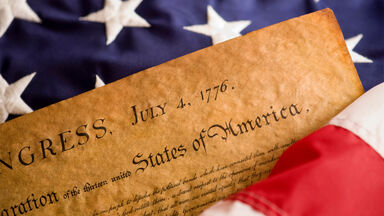North Carolinians fought under Washington at Brandywine and Monmouth and played a still more important part in the Southern campaigns of 1778-1781.
During the War of Independence battles were fought at Brandywine (1777), Paoli (1777), Fort Mifflin (1777) and Germantown (1777), and Washington's army spent the winter of1777-1778at Valley Forge; and Philadelphia was occupied by the British from the 26th of September 1777 to the 18th of June 1778.
Washington's retreat through New Jersey; the manner in which he turned and struck his pursuers at Trenton and Princeton, and then established himself at Morristown, so as to make the way to Philadelphia impassable; the vigour with which he handled his army at the Brandywine and Germantown; the persistence with which he held the strategic position of Valley Forge through the dreadful winter of 1777-1778, in spite of the misery of his men, the clamours of the people and the impotence and meddling of the fugitive Congress - all went to show that the fibre of his public character had been hardened to its permanent quality.
After the battle of Brandywine in the War of Independence, Washington retreated to Chester, and in the "Washington House," still standing, wrote his account of the battle.
He took part in the battles of Brandywine, Germantown and Monmouth, and at Yorktown commanded the first brigade of light infantry.
